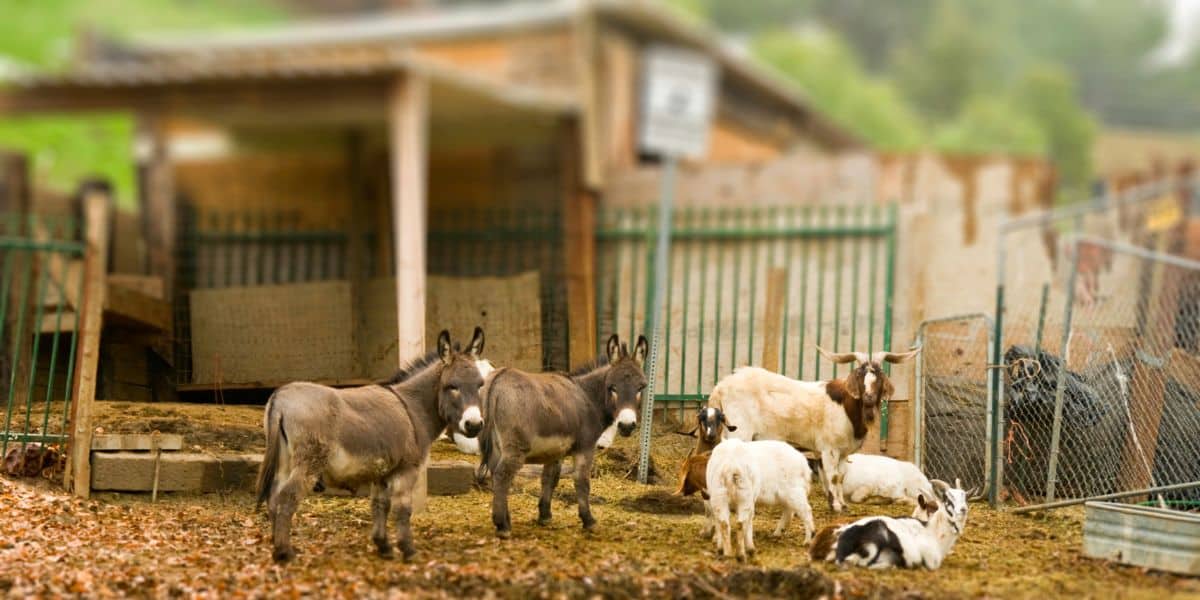Raising farm animals in a small backyard can be both a rewarding and challenging endeavor. Ensuring the health and happiness of your animals in confined spaces requires specific knowledge and adaptability. To help you succeed, this article will guide you through various essential strategies and considerations for nurturing farm animals in compact areas.
Understanding Space Requirements
The first step in backyard farming is assessing how much space you can dedicate to your animals. Different animals have different space requirements. For instance, chickens need about 3-4 square feet per bird inside the coop and about 10 square feet per bird in an outdoor run. Smaller mammals like rabbits or hedgehogs require less space but still need comfortable enclosures to explore and rest securely.
Choosing the Right Animals
Not all farm animals are suitable for small backyards. Select species and breeds that adapt well to smaller, confined spaces. Chickens, rabbits, and certain breeds of miniature goats and pigs are more conducive to limited spaces. When selecting birds, consider quieter breeds like Silkie chickens to maintain good relations with neighbors.
Creating a Healthy Living Environment
Designing an appropriate habitat for each type of animal is crucial. This involves providing sturdy shelters, clean drinking water, and regular feedings of nutritionally adequate food. Here are several important aspects of the habitat to consider:
- Shelter: Protects from weather conditions and predators.
- Feeding areas: Should be clean, easily accessible, and designed to prevent feed from spoiling.
- Water sources: Clean, uncontaminated, and available at all times.
For specific guides on setting up environments, visiting targeted websites can help extend your understanding of creating optimal living conditions. These educational platforms offer comprehensive insights into managing small spaces effectively.
Nutrition and Feeding Practices
Proper nutrition is fundamental for animal health. Dietary requirements vary widely between animal types and breeds. Commercial feeds typically provide a balanced diet, but it’s essential to know how to read and understand feed labels to ensure your animals are getting what they need. Sites like the Humane Society provide tools and tips for deciphering these labels, ensuring you make informed choices about your animals’ diet.
Additionally, nutritional needs change as animals grow, so adjusting their diet as they move from youth to adulthood to senior is crucial. Consider incorporating natural foodstuffs like spruce branches for pet birds, which can enrich their dietary fiber and offer environmental enrichment.
Maintaining Health and Wellness
Regular health check-ups with a veterinarian familiar with farm animals are essential. Preventive measures such as vaccinations and parasite control help keep the animals healthy and prevent diseases from spreading. Additionally, be aware of zoonotic diseases that can transfer from animals to humans. Resources from organizations like the CDC can provide excellent guidance on staying healthy around animal exhibits.
Legal Considerations and Community Relations
Before starting your backyard farm, familiarize yourself with local laws regarding housing farm animals as pets. Permits may be required, and there may be restrictions on the number of animals you can keep. Maintaining good relationships with neighbors is also crucial; managing smells, noises, and overall cleanliness can help keep peace in the community.
FAQ
Q: How often should I clean my animals’ living areas?
A: Clean living areas prevent pests and diseases. Daily spot cleaning and a thorough clean weekly are advisable.
Q: What should I do if my animal shows signs of illness?
A: Isolate the sick animal to prevent disease spread and consult with a veterinarian immediately.
Q: Are there environmentally friendly practices for backyard farming?
A: Yes, implementing sustainable agriculture practices such as composting, rainwater harvesting, and using organic feeds can contribute positively.
Further Resources
For additional information and guidance, numerous online resources delve into specifics about caring for farm animals in condensed spaces. Keeping yourself educated and adaptable will ensure that your backyard farm thrives, becoming a source of joy and sustainability.












